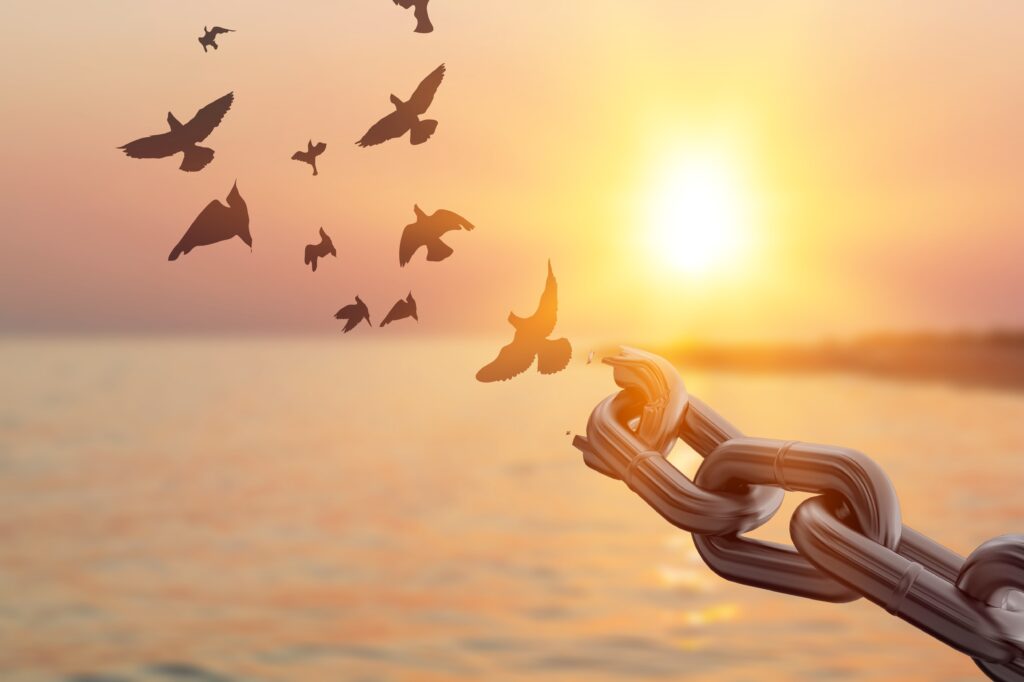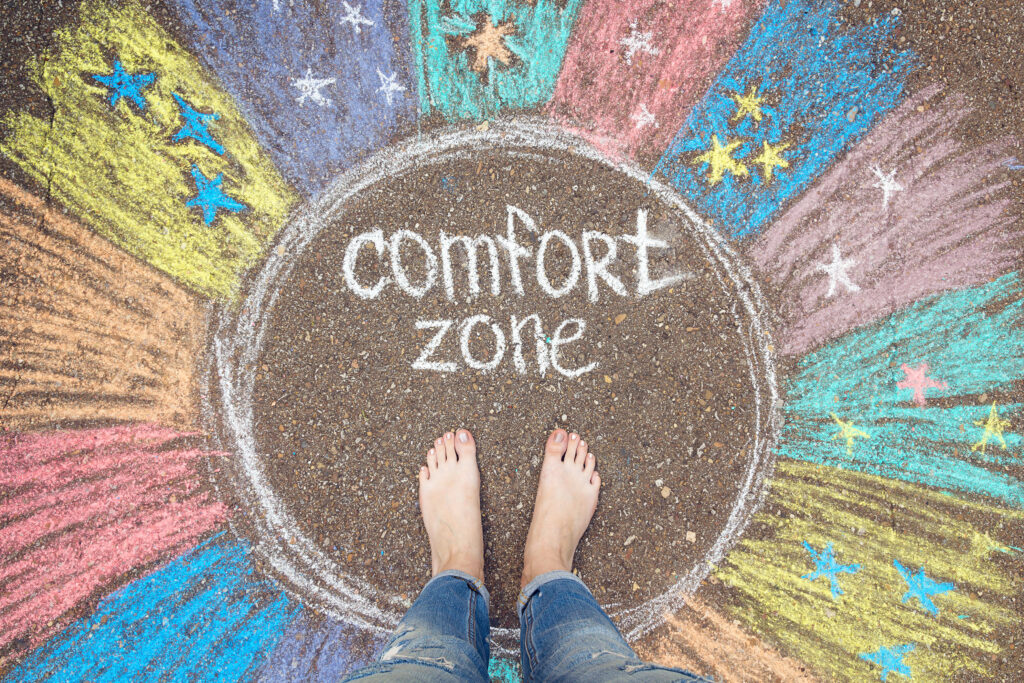
Change is hard. Big change is really hard. We’ve had an onslaught of big change recently, and many of us are reeling. First, Covid hit, and we had to adjust to social distancing. Masks. Lost jobs. Lost opportunities for education, at least temporarily, though how temporarily is anyone’s guess. Isolation. Or having to live in unmitigated proximity to the other members of our “bubble”. Most of all, we are having to adjust to uncertainty on a greater scale than many of us have tolerance for. Then, Mr. Floyd was killed, and many of us watched the footage. The gauntlet has been thrown, the line drawn. White people are being challenged to question their own words and behaviors, their assumptions, their spontaneous reactions revealing the subtle and not-so-subtle racism that has allowed that institution to continue.
The struggle with change is a felt experience
That you are struggling now with change doesn’t make you a bad person. It makes you human. I have yet, in my over twenty years of practice, to encounter a human being that doesn’t struggle with replacing an old truth, an old reality, with a new one. Even when the new one is much better. What happens when we can no longer hold onto the old normal?
Feel it. Feel it in your bones, in the flesh of you. The desire to stand in the story you already know. It may not be a healthy “truth”, but it is known, it is familiar, it is comfortable. It is normal.
A life beyond normal
When I ask my clients, in getting to know them, what they want, they tell me what they don’t want. They don’t want to be in pain anymore. They don’t want to be anxious, or depressed, they don’t want to be so alone, so miserable in their relationships. I ask again, what do you want? I want to be normal, they say. Not healthy. Normal. They want what they believe most other people are living, assuming that the seeming functionality of the general population is a land, and if only they can get to it, everything will be fine. They believe I have a magic wand that will get them from where they are to the land of normal.
I tell them, normal doesn’t exist.
Norms do, of course. White privilege is a norm, going to work is a norm. Misogyny is a norm, and children going to school. The binarization of gender and sexual orientation is a norm, and gathering socially with others. But the land of normal, where everything is just fine, comfortable in a sleepy kind of way, is just surface territory.
If you want to hear God laugh, tell God your plans. Nothing ever really stays the same.
How I help my clients to change
When my clients and I begin the work, we start on the outside. I teach them how to get grounded, to become more mindful, less frenzied, as together we examine what has happened to them: cruel parents, bullying peers, unsafe world. They begin to understand how these outside forces have shaped them. Slowly, gently, we explore how their bodies and their minds have maladjusted to cope with the lack of care and conscience.
This is the beginning of the work. Because now the work really gets to the point: the work of being a better person in, and for, the world. And for that, the willingness now for the client’s internal territory to be challenged by me, and them to accept the challenge, become paramount.
What does this mean for us as a group?
In the world today, we are being challenged to look within ourselves and root out that within us that wounds, as well as is wounded. We are good people, we cry, we did not mean to hurt. Sometimes we rationalize, picking out the arguments that support how we want to feel, how we want to see ourselves. How we want to see our world. At its most extreme, it is a refusal to even recognize that something needs changing.
Maybe that’s why some people won’t wear masks.
I blame thermodynamics. We like homeostasis, we like the status quo, most of us live by the credo go along to get along. We avoid conflict, slamming the door against even the most respectful challenge, because the personal comfort experienced by not rocking the boat is more powerfully desired than we realize. Even when it denies us a deeper joy.
The “Precipitating Incident”
When clients come in to see me for the first time, they describe conditions they’ve been living with for years: abusive parents, inconsiderate partners, meaningless jobs, general loneliness. Yes, I ask them, what, given that this has been part of your life so long, has brought you in? We call this the Precipitating Incident. The spouse hits you, this time, in front of the children. The boss passes you over for the fool you trained two years ago. On a visit to your parents, they humiliate you in a way they haven’t since you were a kid…and it all comes back.
Why is the murder of Mr. Floyd a Precipitating Incident more than all the others who have been harmed? We’ve lived with white dominance and racism all our lives, and there have been many times when whites have stirred from our slumber to recognize racism as a problem, hold some protests, even sport dreadlocks, either in solidarity or bad taste, I’m not sure. For some reason, this has struck a chord deeper than others. Perhaps it was the undeniable horror of it, that any but the most dedicated of racists could not justify.
Covid’s role in changing our perceptions
I suspect Covid had a part to play. Covid stopped us in our tracks, halted the momentum of our busy lives. It woke us up to the fickleness of Normal. In the 1986 film, Stop Making Sense, David Byrne describes what happens when we leave our usual territory and go traveling. We notice things, little things, that we would otherwise take for granted: the gleam of a copper door knob, the scent of a lime tree, the way the sun hits as it rises above the horizon. Covid has sent us traveling, and has given us the time, whether we wanted it or not, to do some reexamining of our lives. In particular, it has called forth something that I think has surprised most of us: our desire to connect with others. Because in our pre-Covid existence, most of us had our appetite for others slacked on a regular basis, we didn’t realize how much we needed people. Not necessarily any one person. Just…people.
It’s almost identical to the place clients arrive at, through mindfulness and other exercises to enhance self-awareness. In this place, they’re more able to go within, challenge their assumptions about themselves, and start building a new and healthier identity. It’s never easy.
We’ve begun the change…where will it lead?
When I was working in residential treatment for teens with oppositional disorders (not unlike those who refuse to wear masks, come to think of it), a counselor once said that he knew that the clients were starting to accept the challenge of needed change because they became depressed. Yes, depressed. The shock of waking up to some quality in themselves that caused another pain, coupled with increased empathy for others, created a period of despair. And for a brief period, they would sit in, and with, their depression. Relatively immobile.
In ocean-speak, this is a “slack tide”. A moment between the tide coming in, and the tide going out. The shore sits before waters that seem not to move at all. We know, though, that mighty forces churn beneath still waters, and the power is building. And once the tide turns, for these teens and I think as well for the rest of us, that temporary depression is replaced by empowerment.
So yes, you’re going to struggle with change, and if you live long enough, have enough personal insight and pay enough attention, you should get quite good at it. It’s a skill like any other. It’s what we refer to when we identify thriving cultures as those which have proven most adaptable, and individuals and groups as most resilient.
Feel the tide changing within you. Don’t fight it. The distress of change is short-lived, and the many gifts of a more enlightened world, one safer for all, is unimaginable…and brilliant.
